News & Media
Bawa: 'Unisa changed my life'
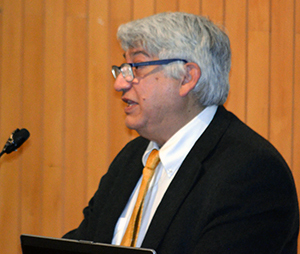
With his heartfelt testimony, Prof Ahmed Bawa, CEO of USAf, joined the voices of the university’s students and alumni as reported in the latest issue of YOUNISA.
Paying homage to Unisa on the occasion of the institution’s 145th anniversary, Universities South Africa (USAf) CEO Prof Ahmed Bawa said that the university offered him a chance when no other would.
Bawa delivered the keynote address at seminar themed ‘University of South Africa and South African universities in transition – The making of an African university: past, present and future’ held on 7 September 2018 at Unisa’s main campus. The event also saw the launch of an exciting new book, Unisa 1873-2018: The making of a distance learning university.
‘The most important service I received in my life’
Bawa shared that he initially studied medicine at the University of KwaZulu-Natal (the University of Natal at the time), and was detained due to his political activities on a number of occasions. During his time at the university he developed a love for physics, and realised that the field would be a better fit than medicine. He dropped out after three years and started working as a sales clerk and did Mathematics I and Applied Mathematics I through Unisa. He then received a scholarship to once again attend the former University of Natal courtesy of a quota system. In his third year he was back in detention and couldn’t afford to continue with his studies. He enrolled at Unisa and completed a BA degree in the early 1980s. ‘This was the most important service I received in my life,’ said Bawa. ‘I simply couldn’t afford full-time study at a residential university, and had Unisa not been there I would have been doing something else today.’ Bawa went on to complete a PhD in Theoretical Physics at the University of Durham in the United Kingdom. Before being appointed as chief executive officer of USAf Bawa was Principal and Vice-Chancellor of the Durban University of Technology.
Universities must live up to society’s expectations
Speaking on the topic of the event, Bawa said that the world, and South Africa, is seeing a degradation of ethical society and an escalation of political violence. ‘We see massive global migrations, huge public health challenges and rapid changes in the world of work,’ he said. ‘All of these things are intensely local but also intensely global. This is why universities are such important institutions. However, universities don’t have the wherewithal to solve these problems by themselves. By the same token, universities can’t sit on the side-lines either. They are, after all, social institutions. They are created by society for the creation and dissemination of knowledge. Societies expect universities to fulfil a certain set of functions.’
Bawa said that one of the challenges that universities, by definition knowledge-intensive institutions, face in the next five years is to determine what the knowledge project is. ‘What is it that drives our universities to be an independent voice in the global system?,’ asked Bawa ‘There’s also the CSIR, HSRC, CERN – all knowledge-intensive institutions. So what is different about universities? The answer is education. This leads us to the challenge of galvanising universities for this powerful role.’
Losing touch
Bawa next addressed the fundamental question of the role of education in society. ’Universities’ publics used to be tightly interwoven with them, but when change happened that link completely broke apart,’ he said. ‘The issue is that universities have not created connections with its new publics. The perception is that universities do not belong to the citizens of South Africa. This then goes back to the knowledge question. We must reflect and reimagine – it is an issue around the world, and not just in South Africa.’ In conclusion, Bawa said that of all the universities in South Africa, Unisa is best placed to grapple with these big issues because it has the necessary flexibility.
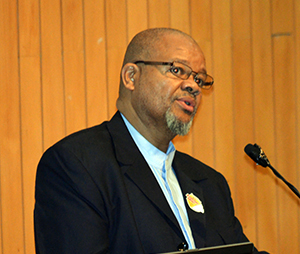
Prof Mandla Makhanya, Unisa Principal and Vice-Chancellor, said that universities are entering an ever more critical and complex period in the development of higher education in South Africa.
Leveraging a global brand
In his earlier his welcome address, Unisa Principal and Vice-Chancellor (VC) Prof Mandla Makhanya also touched on these important themes. ‘Our [Unisa’s] journey has been characterised with the ongoing struggle to transform the academic content of our courses and re-orientate our public image and persona to accommodate the needs and realities of South Africa and the African continent at large,’ he said. ‘This has ensured that Unisa remains unique both in character and in our offerings and we should capitalise on that. We have a firmly established footprint on the African continent and further afield and a brand that is globally recognised and acknowledged. We need to leverage that more concertedly.’
The VC said that Unisa is undoubtedly Africa’s iconic distance learning university. ‘How then,’ he asked, ‘will we ensure its continued flourishing and seminal contribution to our national development? We all know the saying: Those who do not learn from history are doomed to repeat it. Ours has never been, nor will ever be an easy journey. The so-called 4th industrial revolution with its massive potential for national development – particularly through ODeL – compels us to deal with some really thorny challenges: around transformation, collaboration and sourcing the kinds of capacity that we need to ensure that we remain relevant and effective and that our graduates are identifiable as critical and responsible global citizens.’
|
About Universities South Africa Universities South Africa, formerly known as Higher Education South Africa (HESA), is a membership organisation representing South Africa’s universities. The organisation is a representative body of South Africa’s public universities and aims to promote a more inclusive, responsive and equitable national system of higher education. It is committed to advancing the key mission of research, teaching and learning and community engagement, in a consultative and transparent manner. Through lobbying and advocacy, the organisation promotes and facilitates optimum conditions for universities to operate effectively and contribute to the social, cultural and economic development of South Africa. Website: https://www.usaf.ac.za/ |
* By Philip van der Merwe
Publish date: 2018-09-13 00:00:00.0

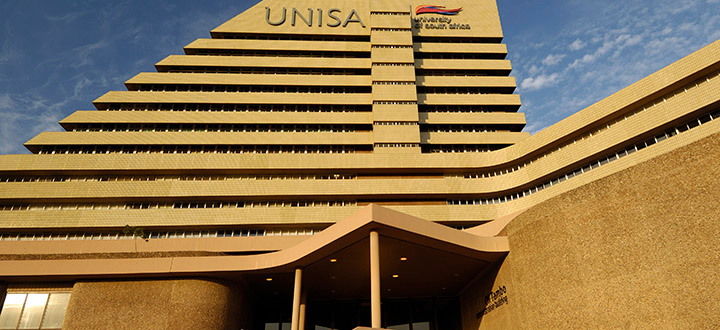 Unisa remains anchored among the waves
Unisa remains anchored among the waves
 Inhlanyelo Hub explores sustainable tourism initiatives in Marico Biosphere Reserve
Inhlanyelo Hub explores sustainable tourism initiatives in Marico Biosphere Reserve
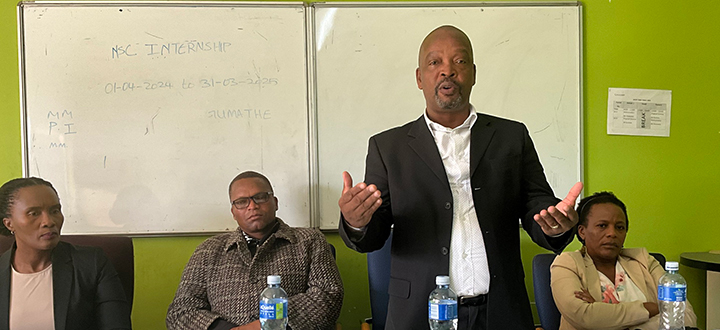 Unisa KZN Region explores extending university services to KwaMpungose community
Unisa KZN Region explores extending university services to KwaMpungose community
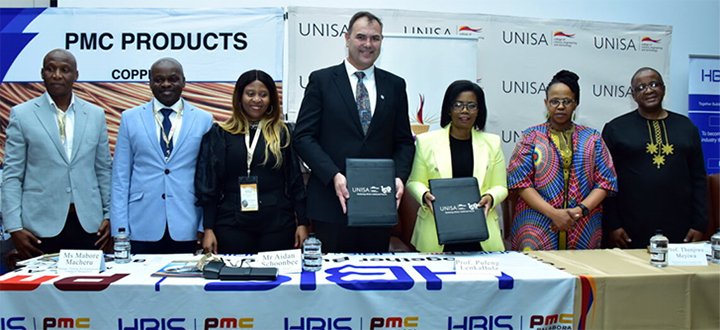 Unisa's catalytic niche areas provide industry-focused mining innovations
Unisa's catalytic niche areas provide industry-focused mining innovations